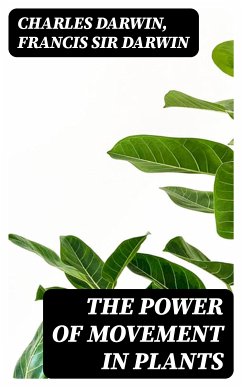In 'The Power of Movement in Plants,' readers are presented with a compelling anthology that meticulously explores the dynamic realm of plant physiology, specifically focusing on the intricacies of plant movement. This collection is distinguished by its rich variety of investigative approaches and literary styles, ranging from empirical scientific studies to thoughtful theoretical essays, all encapsulated within the historical and evolutionary context of botany. The anthology is remarkable not only for its scientific rigor but also for the nuanced insights into the fascinating world of plant life, showcasing groundbreaking work in the field of phototropism and other plant movements. The authors, Charles Darwin and Francis Sir Darwin, bring to this collection a profound depth of knowledge and a familial legacy of scientific inquiry. Their combined efforts situate the anthology at the confluence of the Darwinian evolutionary perspective and the burgeoning field of botany in the 19th century. This collaboration illuminates the intricate mechanisms of plant movement, underpinned by meticulous observation and experimentation, thereby contributing significantly to the scientific and intellectual discourse of the time. 'The Power of Movement in Plants' is an essential read for scholars, students, and enthusiasts of botany and evolutionary biology. It offers a unique opportunity to engage with the pioneering thoughts and experiments that have shaped our understanding of plant physiology. Readers are invited to delve into this collection not only for its historical significance but also for its continued relevance in contemporary scientific discussions, fostering a deeper appreciation for the natural world and the complex mechanisms that govern life on Earth.
Dieser Download kann aus rechtlichen Gründen nur mit Rechnungsadresse in A, B, BG, CY, CZ, D, DK, EW, E, FIN, F, GR, H, IRL, I, LT, L, LR, M, NL, PL, P, R, S, SLO, SK ausgeliefert werden.









